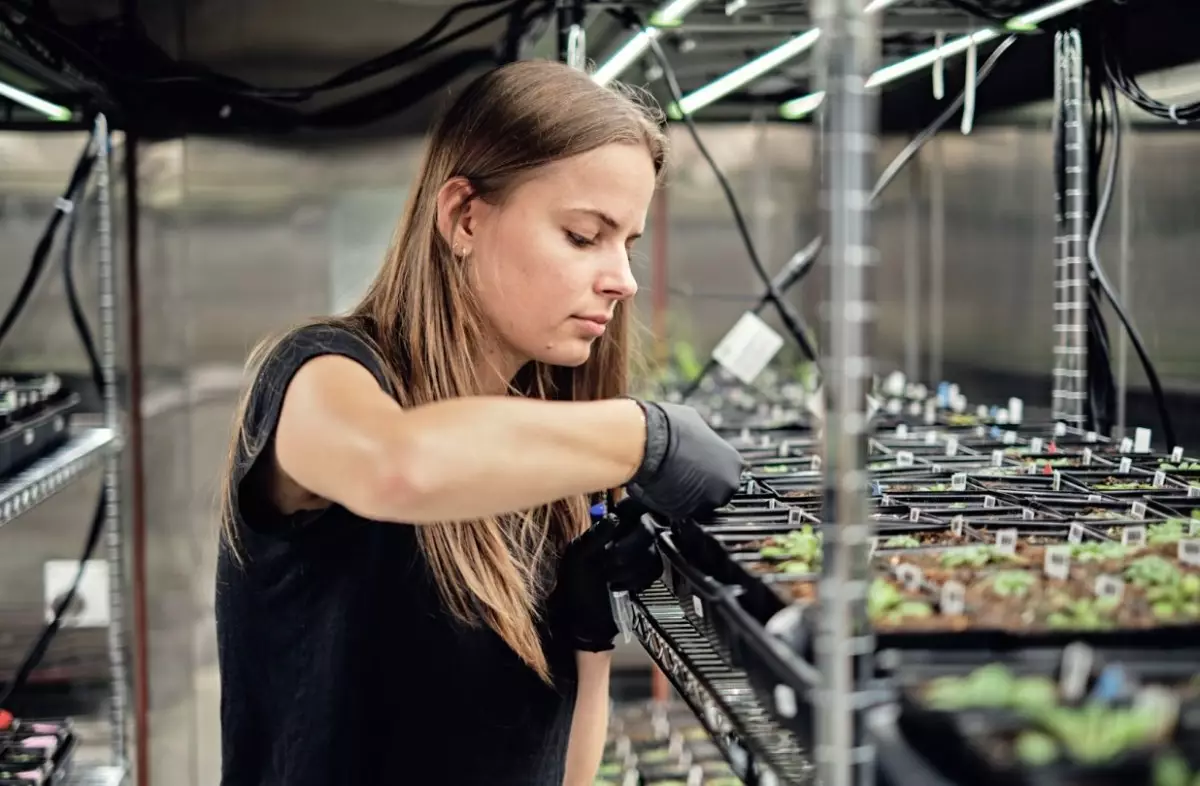As the global population continues to swell, the demand for food production is more critical than ever. Traditional agricultural practices are increasingly under scrutiny for their environmental impact, which includes significant contributions to greenhouse gas emissions and depletion of water resources. Current agricultural methods represent approximately 25% of all human-induced greenhouse emissions while also being the largest consumer of freshwater sources. Amidst these challenges, innovative approaches are essential for transitioning to a more sustainable future in food production. This is the landscape in which Heritable Agriculture emerges—not merely as another startup, but as a beacon of potential change driven by cutting-edge technology.
Founded within the walls of Google’s inventive lab, known as X or the “moonshot factory,” Heritable Agriculture has set ambitious goals concerning the optimization of crop genetics. At its helm is Brad Zamft, a physicist and former program officer at the Bill and Melinda Gates Foundation. Zamft’s trajectory into the realms of biotechnology and sustainable agriculture equipped him with the expertise and vision needed to tackle the inefficiencies of modern farming. His leadership is now steering Heritable toward exploring the potentials of machine learning and vast datasets to unlock transformative insights into plant development.
Unlike many agricultural companies that rely solely on field experimentation, Heritable intends to leverage the power of data analysis. The firm’s fundamental premise is that plants are inherently remarkable bio-machines—self-sufficient systems adept at converting sunlight into energy. By analyzing plant genomes in combination with machine learning, Heritable seeks to establish methods that not only enhance crop yields but also minimize resource consumption. Zamft emphasizes that the optimization process involves studying plant genetics within controlled environments, which allows for precise modifications to their breeding strategies.
Innovative Approaches to Genetic Analysis
Heritable Agriculture is not a conventional genetic modification firm; rather, it is focused on refining existing breeding techniques to enhance agricultural productivity sustainably. By examining genetic compositions and identifying favorable traits, the startup aims to cultivate higher yielding, more resilient crops without resorting to genetic engineering at this stage. Zamft explains that while techniques like CRISPR may eventually become part of Heritable’s arsenal, the focus now lies on improving traditional breeding practices. “The immediate goal is to determine which parent plants to cross for optimal outcomes,” he states, underscoring the company’s commitment to developing reliable methods for advancing agricultural genetics.
The research conducted by Heritable often takes place within specialized growth chambers, allowing for the meticulous analysis of plant responses under various conditions. This experimental setup, combined with field evaluations in diverse agricultural landscapes, from California’s sun-kissed fields to the humid terrains of Nebraska and Wisconsin, underscores the company’s goal of integrating scientific research with the nuances of real-world farming.
An essential aspect of Heritable Agriculture’s development journey involves building partnerships that can fuel its growth. Recently, the startup successfully secured funding from notable investors including FTW Ventures, Mythos Ventures, and SVG Ventures, along with ongoing support from Google. This backing will be crucial in translating innovations into tangible agricultural solutions that can be commercialized for farmers.
With a solid foundation and a clear roadmap, Heritable stands at the confluence of agriculture and technology, poised to influence the future of food production. By promoting data-driven decisions and taking a scientific approach to breeding, the startup not only aims to advance crop genetics but also addresses pressing global challenges—namely, ensuring food security while tackling climate change.
As Heritable Agriculture embarks on its mission to innovate within the agricultural sector, it embodies a critical shift in how we approach food production challenges. By harnessing the power of machine learning and data analysis, it is set to redefine the standards of modern agriculture, not just for profitability but for sustainability as well. The journey ahead may still be unfolding, but with innovative minds like Zamft leading the charge, the potential for transformative impacts on our global food systems is immense. As we look toward the future, the integration of agriculture and technology has never seemed more promising.

